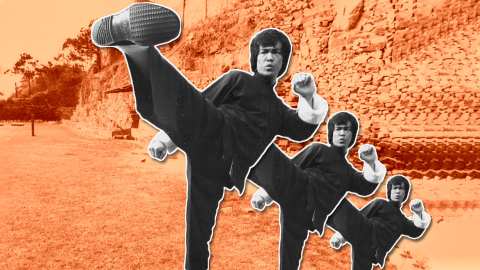How to personalize your habit-forming strategy and conquer your new year’s resolution

It’s officially the new year, and you’ve probably set a goal. Perhaps you’ve decided on the classic New Year’s resolution: Buy a gym membership and get in shape. Fueled by a fresh burst of willpower, you go to the gym every day for half of January. But by the third week you find yourself going to the gym less frequently. Soon you stop going altogether.
The data on U.S. gym membership show that thousands of people follow this predictable pattern every year. Why? You might be tempted to say that these people lack willpower or commitment. But the more likely answer is that most people don’t understand the nature of habits, and so they aren’t able to effectively integrate habits into their daily routines.
Design habits for you
You’ve probably read about the specific habits of ultra-successful people. For example, investor Warren Buffet devotes several hours of his daily routine to reading. Retired Navy SEAL and business consultant Jocko Willink wakes up at 4:30 a.m. every day (and tweets a photo of his watch showing the time, holding himself accountable to his followers) in order to exercise on the beach. And basketball pro LeBron James is said to be equally militant about getting shut-eye, sleeping 12 hours a day: 8 at night plus a 3-hour nap.
It’s likely that some version of these habits—exercise, reading, better rest—would benefit everyone. But mirroring others’ habits can sometimes be a counterproductive strategy, as Rubin tells us:
“In my observation, when people fail, it’s because somehow they’ve gone about trying to set up a habit because that’s what Einstein did, or that’s what worked for their brother, but it’s not what works for them, and so then the habit just doesn’t take.”
For example, take the 4:30 a.m. workout routine of Jocko Willink. Waking up that early works well for him, but it might not work well for you if your chronotype causes you to lean toward being more active and productive at night compared to morning. In others words, what works for a morning lark won’t necessarily work for a night owl, and these factors are largely due to genetics and age.
Below, Rubin outlines several questions to ask yourself in order to develop habit-forming strategies that best suit your personality.
Let’s rehash Rubin’s questions to figure out your type and best course of action.
Are you a marathoner, sprinter or procrastinator?
If you prefer accomplishing a little bit every day, you’re likely a “marathoner.” But if you enjoy working up to the last minute of a deadline, you’re probably a “sprinter.” So, then, what’s the difference between a procrastinator and a sprinter? Although both types tend to finish projects at the last minute, sprinters do so because they enjoy it and thrive under the time constriction. Meanwhile, procrastinators want to start early but can’t, and this often leads to poor results. If you’re a procrastinator, try to build habits that emphasize scheduling and time management.
Finisher or Opener?
Finishers love to complete tasks, while openers love to start them. Neither is bad in itself. But it’s worth considering which side you lean toward so you can build habits that enable you to be as productive and creative as possible. For example, if you’re an opener with many unfinished projects, you can try to build a habit where you prioritize projects that are closest to being finished.
Promotion focused or prevention focused?
Some people focus on warding off danger. Others look forward to bringing in new positive things into their life. For example, you might want to change your diet to prevent disease, so you focus on removing the bad habit of eating junk food. Alternatively, you might simply want to feel healthier in daily life, so you focus on building the good habit of eating fruits and vegetables. If you’re focused on removing bad habits, try to remember that bad habits provide you some kind of reward. It’s best to replace a bad habit with a good habit that also provides a reward, albeit a healthy one.
Small stepper or big stepper?
When building a new habit, many people prefer making small changes in an incremental fashion over time. But some people prefer radical change, and would rather take big steps from the start. The key is to pick a strategy that you can stick with until you form your habit. How long will that take? According to a study published in the European Journal of Social Psychology, the answer is about 66 days, though the exact time can vary by individual.
By combining your knowledge of the science on habit-forming with your unique personality type, you can develop an action plan that will yield results.
Build positive habits into both your personal and work life with the help of lessons ‘For You’ and ‘For Business’ from Big Think+. You can sign up for yourself right now, or request a demo for your organization.




